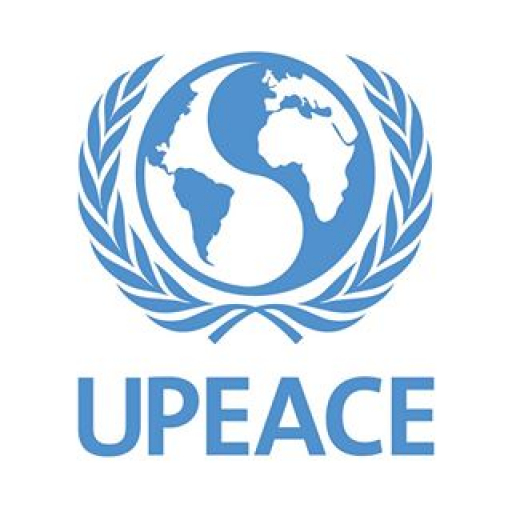Photos of university / #officialuom
an innovative interdisciplinary programme designed to equip students with comprehensive knowledge and practical skills required to address complex humanitarian crises and conflict situations worldwide. this degree integrates the study of humanitarian principles, conflict analysis, international law, and development strategies, providing a holistic understanding of the challenges faced by vulnerable populations in times of crisis. students will explore topics such as emergency response management, peacebuilding, refugee protection, and the ethical considerations involved in humanitarian work. through a combination of theoretical learning and practical training, including case studies, simulations, and fieldwork opportunities, the programme prepares graduates to work effectively in diverse humanitarian contexts. the curriculum emphasizes critical thinking, cultural sensitivity, and ethical decision-making, ensuring students are capable of designing and implementing sustainable solutions to humanitarian problems. in collaboration with international organizations, NGOs, and governmental agencies, the course offers valuable networking opportunities and insights into current best practices. graduates of this programme will be well-equipped to pursue careers in humanitarian aid organizations, conflict resolution agencies, development initiatives, or further academic research. the programme is delivered by experienced faculty members with extensive field experience and engaged in cutting-edge research, ensuring that students receive an education grounded in real-world expertise and latest developments in the field. whether pursuing a career in crisis response, policy development, or research, students will graduate with a solid foundation and the agility to adapt to the rapidly changing landscape of international humanitarian efforts.
The Humanitarianism and Conflict Response programme at The University of Manchester offers a comprehensive exploration of the critical issues surrounding international aid, conflict, and humanitarian intervention. This interdisciplinary course is designed to equip students with a deep understanding of the complexities involved in responding to crises caused by war, natural disasters, and other emergencies worldwide. Throughout the programme, students examine the political, social, and economic factors that influence conflict and humanitarian intervention, gaining insight into the roles played by governments, NGOs, and international organizations such as the United Nations and the International Committee of the Red Cross.
The curriculum covers essential topics including the ethics of humanitarian intervention, the impact of conflict on vulnerable populations, disaster response strategies, and the challenges of delivering aid in insecure environments. Students will analyze case studies from recent crises to understand the practical application of humanitarian principles, assessing the effectiveness and limitations of various response mechanisms. In addition to theoretical knowledge, the programme emphasizes practical skills like risk assessment, crisis communication, and project management, preparing graduates for operational roles in humanitarian agencies and conflict zones.
Students also explore the legal frameworks governing humanitarian work, including international humanitarian law and refugee law, to understand how these laws shape response efforts and protect affected populations. The programme encourages critical thinking and reflective learning, enabling students to evaluate current policies and propose innovative solutions to ongoing humanitarian challenges.
With access to world-class research facilities and expert faculty, students will have opportunities for practical placements and internships with leading humanitarian organizations. This experience enables students to develop real-world skills and network with professionals in the field. The programme ultimately aims to foster compassionate, knowledgeable, and effective practitioners who are capable of making a positive impact in some of the world's most challenging environments. Graduates of the Humanitarianism and Conflict Response programme are well-prepared to pursue careers in international humanitarian agencies, policy development, crisis management, and related fields, making a meaningful contribution towards alleviating human suffering caused by conflict and disasters worldwide.
The University of Manchester offers a comprehensive degree programme in Humanitarianism and Conflict Response that is designed to equip students with the knowledge and skills necessary to address complex issues related to humanitarian aid, conflict resolution, and international development. Admission requirements typically include a strong academic background, with applicants expected to hold at least a relevant undergraduate degree or equivalent qualification. A relevant background in social sciences, international relations, development studies, or related fields is often preferred, though specific prerequisites may vary. Proficiency in English language testing such as IELTS or TOEFL may be required for non-native speakers, with minimum scores applicable as specified by the university. Applicants are usually required to submit a personal statement outlining their motivation, relevant experience, and career objectives, along with references from academic or professional sources. Work experience in humanitarian or development sectors can be advantageous but is not always mandatory. Additionally, the university may conduct interviews or assessments to evaluate an applicant’s motivation and suitability for the programme. Candidates should demonstrate a commitment to humanitarian principles and an understanding of the contemporary challenges faced by the sector. International students are encouraged to apply and should ensure compliance with visa requirements. The selection process aims to admit candidates who show academic potential, practical experience, and a clear interest in humanitarian issues. Overall, the programme’s entry requirements are designed to attract motivated individuals committed to making a positive impact in crisis-affected regions around the world.
Want to improve your English level for admission?
Prepare for the program requirements with English Online by the British Council.
- ✔️ Flexible study schedule
- ✔️ Experienced teachers
- ✔️ Certificate upon completion
📘 Recommended for students with an IELTS level of 6.0 or below.
The Master of Humanitarianism and Conflict Response program at The University of Manchester offers various financing options to support students throughout their studies. Tuition fees are determined annually and are available on the university's official website, with international and domestic students potentially paying different rates. The program encourages applicants to explore a range of funding sources, including government scholarships, university bursaries, and external funding bodies. Students are advised to consult the university’s scholarships and funding webpage for detailed information about eligibility criteria, application procedures, and deadlines. The university provides a comprehensive financial aid package, which may include partial tuition fee waivers, research grants, and living cost stipends, especially for students engaged in research components of the program. Additionally, many students finance their studies through student loans, available via government schemes or private lenders, depending on their nationality and residency status. The university also promotes part-time work opportunities on campus, which help students offset living expenses. It is recommended that prospective students apply early for scholarships and financial aid to maximize their chances of securing funding. International students should also consider external scholarships from their home countries or international organizations dedicated to supporting students in humanitarian and conflict response fields. The university’s financial services team offers personalized advice and planning support to help students develop feasible funding strategies aligned with their individual circumstances. Overall, students are encouraged to explore all available avenues of financial support to ensure they can focus fully on their academic and professional development during the program.
The Humanitarianism and Conflict Response program at The University of Manchester is a multidisciplinary course designed to prepare students for careers in humanitarian aid, conflict resolution, and international development. The program explores the complex issues surrounding global conflicts, disaster management, and the ethical considerations involved in humanitarian work. It provides a comprehensive understanding of the political, social, and economic factors that influence conflict and humanitarian crises worldwide. Students are equipped with practical skills in problem-solving, project management, and effective communication essential for working in challenging environments. The curriculum includes modules on international humanitarian law, disaster response techniques, and conflict analysis, allowing students to develop a nuanced perspective on the causes and consequences of conflicts, as well as the strategies employed to address them. The program emphasizes both theoretical frameworks and applied skills, often involving case studies and simulations to prepare students for real-world situations. It also promotes critical thinking about ethical dilemmas faced by humanitarian workers and policymakers. Opportunities for fieldwork, internships, and collaborative projects with international organizations are integrated into the program to give students practical experience. Graduates are well-positioned for roles in non-governmental organizations, United Nations agencies, government agencies, and other international institutions working in crisis zones or developing long-term recovery strategies. Additionally, the program fosters a global outlook, encouraging students to understand cultural diversity and develop cross-cultural communication skills. As part of The University of Manchester's commitment to research-led teaching, students benefit from engagement with leading academics and practitioners in the field of humanitarian assistance and conflict response. The program aims to produce graduates who are both knowledgeable and compassionate, capable of making meaningful contributions to alleviating human suffering and promoting peace and stability worldwide.









